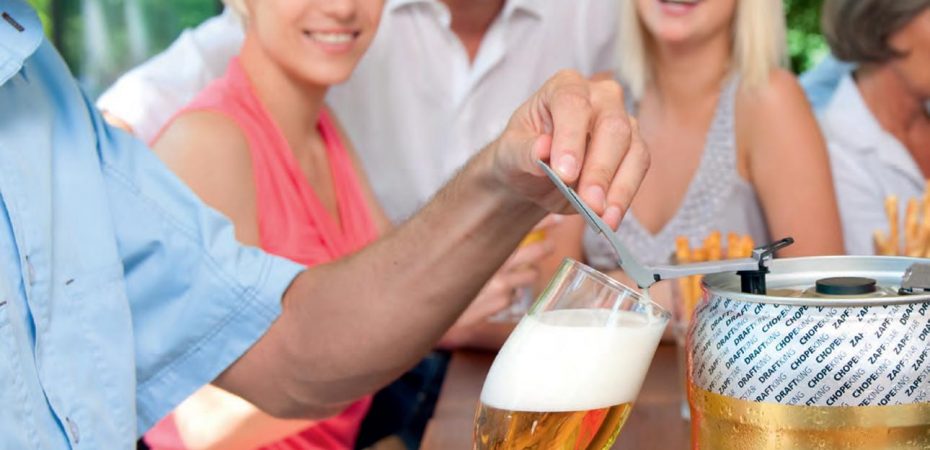In 1970s Britain, the Party Seven stood alongside bottles of Blue Nun as an essential lubricant to any social gathering worth its oversized lapels, offering seven pints (4L) of industrial Watney’s bitter in a giant can. Like the brewery that spawned it, the Party Seven is long gone, while the concept of draught beer at home is making an unexpected comeback.
Interestingly, it’s the smaller breweries rather than the multinationals that are making the running. Look hard in your local supermarket and you might find the occasional Heineken Draughtkeg, but if your taste runs to more interesting contents (and let’s face it, reading this magazine is a sure indicator that it does), a good place to start is the website of your favourite local microbrewery, as more and more of them are selling draught beer in manageable formats direct to the public.
The old stalwarts of the home draught market are recyclable ‘bag in box’ polypins and minipins, collapsible plastic bags in cardboard cartons containing 36 and 18 pints (20L and 10L) respectively. They’re often used to package beer cask-style with yeast to create a secondary fermentation, in which case they’ll need to settle before use, with excess carbon dioxide vented through a device on the tap. Such beers keep for up to four weeks unopened, but once you’ve served the first pint you’ll need to drink the rest within a few days.
Beer shop the Bitter End in Bromley, South London, has long specialised in bulk beer for the public, custom filling minipins and polypins complete with sediment to order (see beerbarrels2u.co.uk) and selling smaller takehome containers of cask beer over the counter. They deal with a range of well known breweries like Batemans, Black Sheep, Dark Star, Fuller’s, Harveys, Harviestoun, Hop Back, Oakham, Skinner’s, St Austell, Timothy Taylor, Westerham and Woodforde’s.
“Mostly we supply for weddings, parties, functions and corporate events,” says co-owner John Rothwell, “but as pubs get more expensive more and more people are teaming up to share polypins at each other’s homes.” With prices that work out at around £2.50 a pint in an area where £4 isn’t unusual in pubs, the attraction is obvious.
Bag in the box cask beer is easy enough to handle but unless you’re lucky enough to have a walk-in fridge or a cool cellar, you might have to resort to picnic-style ice blocks to chill it, as it can’t be moved prior to serving. Less hassle is beer that’s been “racked bright” – fined and left to settle to remove the active yeast. Many breweries offer beer in this form and it pours clear without needing to settle, but has a very short shelf life and needs to be bought as soon as possible before consumption.
Bag in box containers now face competition from what some would claim is a superior product. When Windsor & Eton brewery first opened in 2010, founders Paddy Johnson and Will Calvert were determined to sell both bottled and draught beer direct to the public. As well as cutting out the middleman, this tactic helped establish a much closer relationship between brewers and drinkers.
This Article is from Beers of the World Issue 26, and the rest can be found here.

